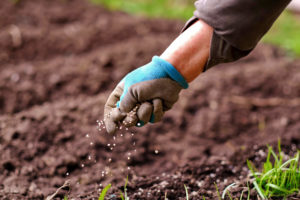Abstract
Highlights
Long-term study examined fluoride accumulations in orchard soil and apple fruit.
Phosphate fertilization increased total and water-soluble F contents in topsoil.
Phosphate fertilizer application increased fluoride content in apples.
Organic manure decreased water-soluble fluoride content in soil.
Soil fluoride concentration decreased with depth.
Phosphate fertilizer can cause fluoride accumulation in the soil and excessive fluoride poses potential risks to soil and food crop safety. However, the effects of fertilization on soil and fruit fluoride accumulations through long-term positioning trials, especially in high-fertilizer application situations such as apple orchards, have received little attention. To close this knowledge gap, we conducted a field experiment to demonstrate the effects among five long-term (13-year) fertilizer treatments on fluoride accumulations at different soil depths and in the fruits of an apple orchard in Baishui, Shaanxi, China. The five treatments included no fertilization (CK); manure application (M); nitrogen and phosphate fertilization (NP); nitrogen, phosphorus, and potassium fertilization (NPK); and groundcover with nitrogen and phosphate fertilization (GNP). The results confirmed that all phosphate fertilizer treatments (NP, NPK, and GNP) had significant increases in total fluoride (TF) and water-soluble fluoride (WF) accumulations in the topsoil (0-20 cm). Among the phosphate fertilizer treatments, NP topsoil accumulated the most TF and WF, 79.4 and 7.7 mg kg-1 more than CK, respectively, and an average annual TF increase of 6 mg kg-1. However, the M treatment both experienced reduced fluoride content in the topsoil and had TF and WF contents 8.1 and 0.67 mg kg-1 lower than CK, respectively. There was no significant difference between all fertilizer treatments and CK in apple fluoride content. Furthermore, TF and WF accumulated mainly in the topsoil and the differences in soil fluoride content among the treatments decreased with soil depth. These findings showed that long-term phosphate fertilization increases the risk of fluoride accumulation in orchard topsoil. Altogether, these results improve the understanding of the characterization of soil and fruit fluoride accumulations in apple orchards under long-term fertilizer conditions and provide new insights into the use of manure as a possible alternative fertilization strategy that reduces fluoride accumulation.
*Original full-text article online at: https://pubmed.ncbi.nlm.nih.gov/36436625/

